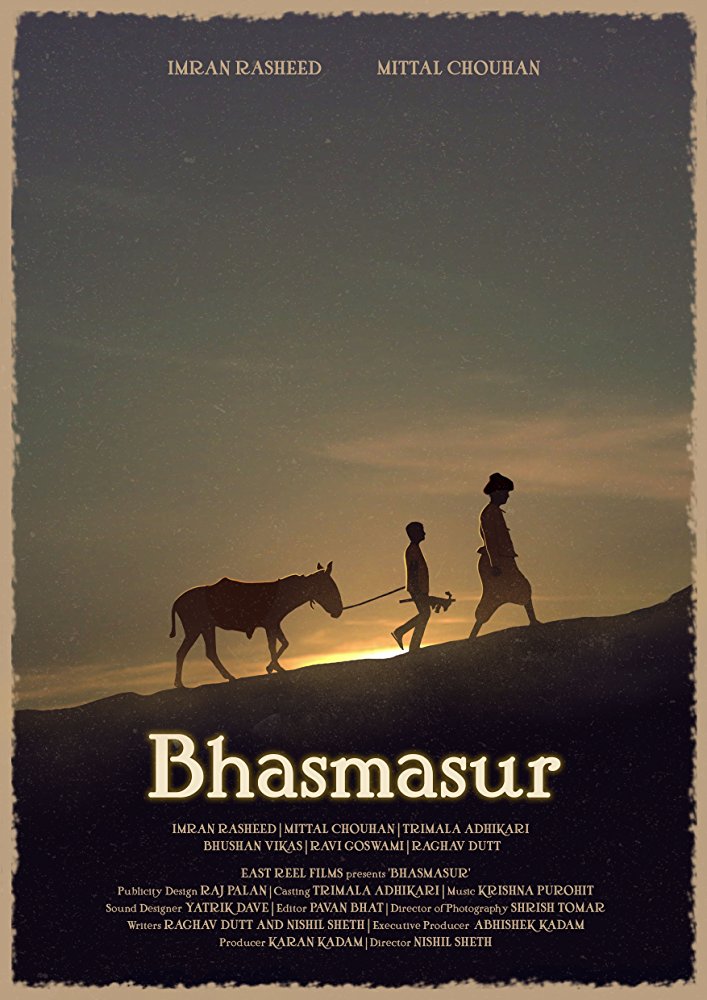
DFW SAFF 2018 Film Review “Bhasmasur”
WATCH THE TRAILER HERE
First, the Recap:
Acts of absolute desperation. When we’re caught with our backs to the wall, it becomes the natural instinct to initiate extreme measures to try and extricate ourselves from the mess we’ve most likely created. Then, the only question that remains is–will anyone else end up paying the price for our mistakes and dire need? In a remote village, a young boy named Tipu (Mittal Chouhan) stays with his Aunt, Bua (Trimala Adhikari), and her daughter. Trying to enjoy the carefree life of a child, Tipu still finds himself longing for a trip to the city to see the annual fair and possibly even enjoy its fun-filled offerings. However, in the state of financial need the family is in, those chances are slim.
Taking solace in his deep bond with the family’s donkey, Bhasmasur, Tipu at least finds some semblance of joy. Not truly helping matters is Bua’s brother Dhaanu (Imran Rasheed) who is Tipu’s father. A man of poor choices who finds himself under a heavy debt to a lender, Bhoora (Ravi Goswami), Dhaanu comes back to the village to hide. Realizing his father must try and sell Bhasmasur to cover his debt, initial attempts are made by Tipu to prevent his prized friend from being taken away. Ultimately, Tipu ends up on the road to the city with his father and Bhasmasur, braving the harsh conditions of Rajasthan to get there. Throughout, however, Dhaanu and Tipu find a newly formed bond growing between them. Yet, will it become one that can last?
Next, my Mind:
While some directors may choose to be blatantly obvious in what message, social or otherwise, they are trying to convey in a given film, others choose to make just as powerful a statement, but execute its delivery by such means as to where the viewer must really let it all sink in before actual impact occurs. This was certainly the case with writer/director Nishil Sheth’s 75-minute indie feature film that made its international debut at DFW SAFF 2018. The always relevant and evocative thematic elements involving the father/son dynamic, the cost of making poor choices, and the subsequent actions that are required to right things are all present here to great effect. Plus, the journey across very barren, unforgiving landscapes that Tipu, Dhaanu, and Bhasmasur take on is daunting enough, much less the additional perils and pitfalls they encounter once having reached the city. But, in the wake of all the chaos, there comes the sequence at the fair, which even more so solidifies the bond Tipu and Dhaanu have rediscovered, and it is stirring and real to watch unfold. Now, to say anything else in detail would be to traverse into spoiler territory, which this reviewer strives never to do. Therefore, let’s just say Sheth provides us with one whopper of a finale that will remain cemented in your mind long after the credits roll. It’s highly effective narrative-weaving and filmmaking, but just–wow.
Rasheed is excellent in his role as Dhaanu, a harried wreck of a man whose gotten in way over his head with the wrong people, now having no initial choice but to try and hide from them at his sister’s home, which likewise puts her, her daughter, and his own son potentially at risk as well. Choosing what he believes is the best course of action to be rid of the harassment by selling off Bhasmasur, Dhaanu ends up on further outs with Tipu until the pair make the arduous trip to the city, all along the way facing the adversities encountered and growing closer slowly but surely. By the time the moments at the fair have come, one would believe their relationship has been truly healed–or hasn’t it? Rasheed embodied this character so very well with all his quirks, physical and emotional, perfectly played by the actor. Likewise, Chouhan turns in an amazing performance as Tipu, a boy simply trying, and sometimes succeeding, to be a boy, especially when acting out against Bhasmasur being sold. His initial contempt and non-understanding about his father’s decision only begins to be alleviated once they’re on the road together, although we see plenty of instances where Tipu hints to his father about perhaps not selling Bhasmasur after all. But, once some incidents occur in the city and the fair has been attended, all is forgiven and Tipu sees his father again through eyes of love that will last–or won’t it?
Additional supporting turns are present here from Adhikari as Tipu’s aunt, Bua, who has more than her fair share of misgivings about not only her brother’s foolish choices, but also about his taking Tipu with him on such a dangerous journey, Goswami as money lender Bhoora, someone not to be trifled with when he comes to collect what’s his and an individual cannot pay, along with Raghav Dutt as Genie, and Bhushan Vikas as a shopkeeper. In total, “Bhasmasur” holds within its dramatic foundations and potent finale a sobering look at the plight of rural India, those who dwell there, and the extreme measures that actually occur in situations similar to the one depicted here. It should be a wake-up call to the powers that be that perhaps they should seek more proactive ways to aide those in such alarming and drastic states of being, and here’s hoping this film can be a part of initiating change.
As always, this is all for your consideration and comment. Until next time, thank you for reading!
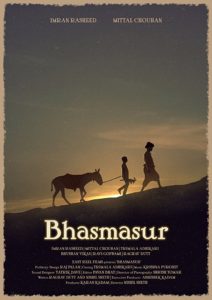
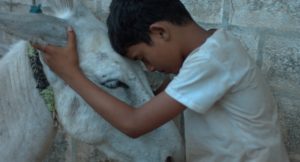
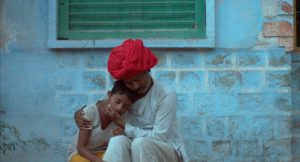

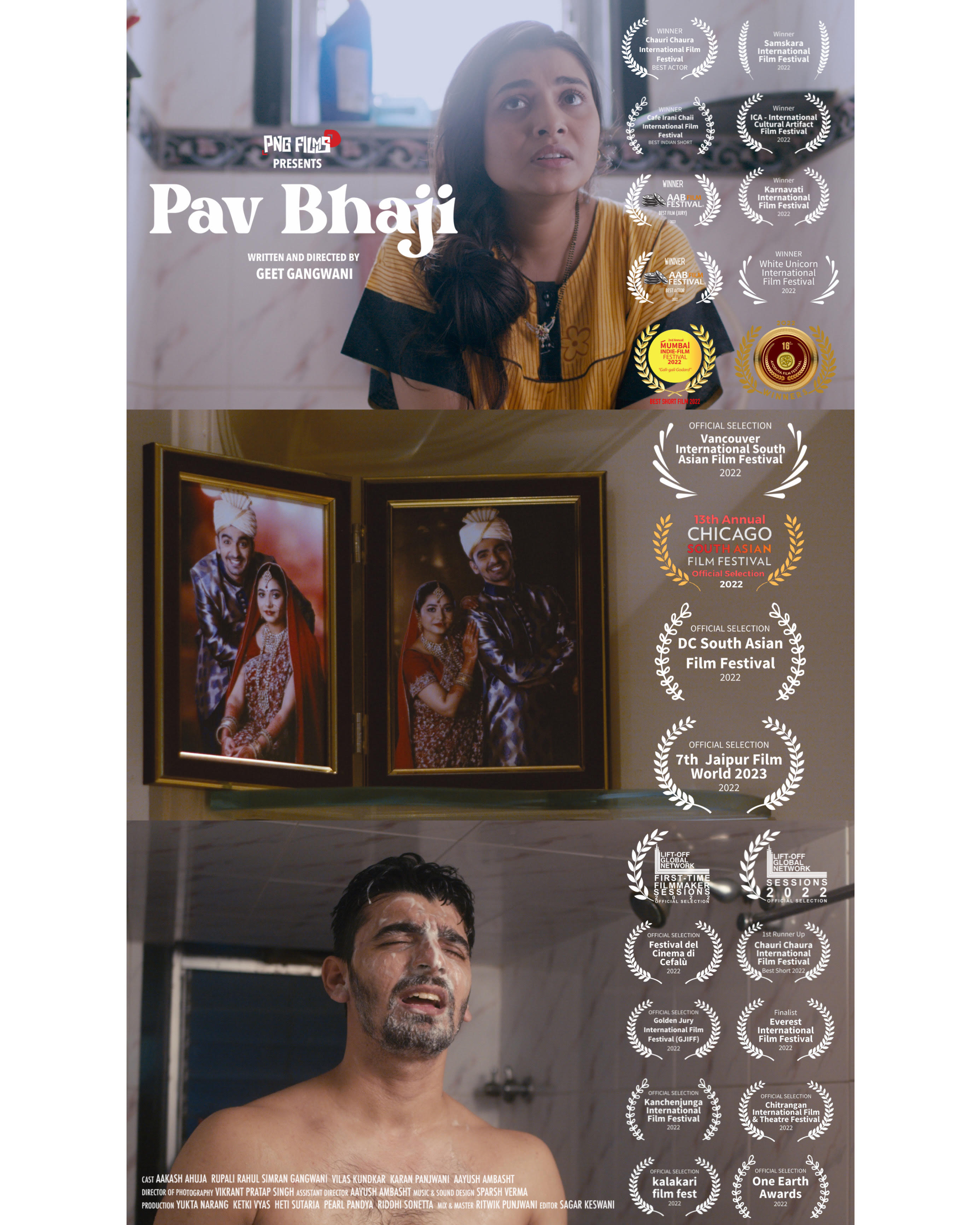
I didn’t see the film but what I understand, through the analysis of Kirk Fernwood, is that the director chooses the language of images and a strong narrative instead of a didactic message.
Nishil Sheth’s indeed manages, however, to slip a social analysis and to suggest that this rural India must overcome the feeling of a predestination to go towards an awareness and thus is escaping this collective unconscious of the system of castes.Beautiful interpretation of performers who highlight the underlying discourse.
Congratulations to this Indian director and his team for treating this beautiful and ambitious subject in the context of independent cinema !
Thank you, Pierre❤
I watched the movie and I think it is rather a tale of father taking his son to city to sell him for money to pay debt that he owes and also to give his son a better life cause he is dead out of poverty himself ,which makes him guilty of not being enough for his son.
Tipu was taken not to handle the donkey but donkey was taken to lure tipu to come along.After selling tipu,the father spends a last day with his son making him happy with things like fair rides,good food and shoes as a last goodbye ritual and see him smiling for last time before he leaves him with his new guardian or owner whatever you want to say.
Yes you are right on Priya… why do these critics beat around the bush. The boy was sold by his own father, out of sheer desperation and poverty. I would hope and pray that the lives of so many people in India can be improved.